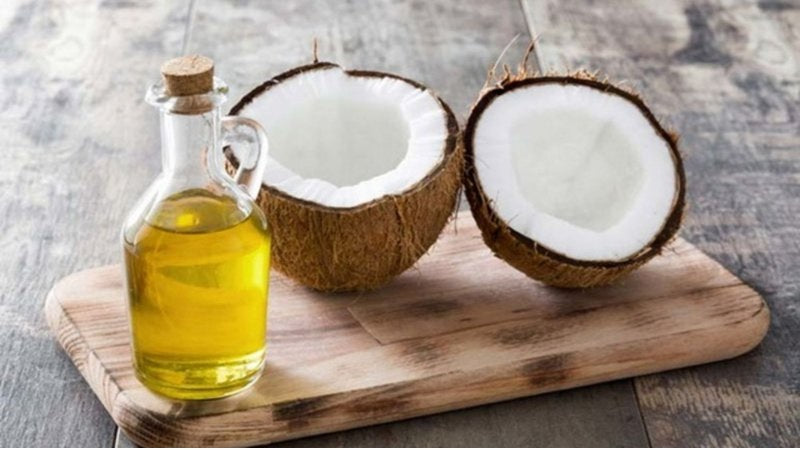
Is Coconut Oil a Safe Lube for Sex?
When it comes to intimate moments, the choice of lubricants plays a pivotal role in enhancing comfort and pleasure. Among the various options available, coconut oil has gained popularity as a potential natural lubricant for sex. However, its safety and compatibility with certain intimate products, such as Lubex condoms, raise important considerations.
Intimate lubricants, including gels and water-based natural lubricants, are designed to alleviate friction and heighten sensations during sexual activity. Coconut oil, prized for its moisturizing properties and natural origin, has emerged as an alternative to traditional lubricants. Its smooth texture and reported effectiveness have led many to explore its use in intimate moments.
One of the key advantages touted by coconut oil enthusiasts is its long-lasting lubricating properties. It's often praised for its ability to provide prolonged moisture, potentially reducing the need for reapplication compared to water-based lubricants.
However, concerns arise when considering its compatibility with certain intimate products, such as Lubex condoms. Lubex condoms, pre-lubricated for enhanced comfort and safety, might not pair well with coconut oil. The oil-based nature of coconut oil can compromise the integrity of latex condoms, leading to an increased risk of breakage. This can potentially undermine the intended protection against sexually transmitted infections (STIs) and unintended pregnancies.
Moreover, the use of oil-based lubricants like coconut oil with condoms, especially dotted or ribbed variants, can diminish the texture's effectiveness, potentially impacting the overall experience.
While coconut oil has its merits, it might not be the ideal choice when using Lubex condoms or other latex-based intimate products. Water-based natural lubricants, like those found in Lubex condoms, remain a safer option as they are compatible with latex materials and reduce the risk of condom breakage.
It's crucial to prioritize safety and effectiveness when selecting intimate products. While coconut oil may seem appealing for its natural properties, individuals should be aware of its limitations, especially when using condoms as a form of protection.
In conclusion, while coconut oil may offer natural moisturizing and long-lasting properties, it might not be the safest choice when paired with Lubex condoms or other latex-based intimate products. Water-based natural lubricants, such as those specifically formulated for Lubex condoms, provide a safer and more compatible option, ensuring both comfort and protection during intimate moments. Understanding the compatibility of lubricants with specific products remains essential for a safe and satisfying experience.
Intimate lubricants, including gels and water-based natural lubricants, are designed to alleviate friction and heighten sensations during sexual activity. Coconut oil, prized for its moisturizing properties and natural origin, has emerged as an alternative to traditional lubricants. Its smooth texture and reported effectiveness have led many to explore its use in intimate moments.
One of the key advantages touted by coconut oil enthusiasts is its long-lasting lubricating properties. It's often praised for its ability to provide prolonged moisture, potentially reducing the need for reapplication compared to water-based lubricants.
However, concerns arise when considering its compatibility with certain intimate products, such as Lubex condoms. Lubex condoms, pre-lubricated for enhanced comfort and safety, might not pair well with coconut oil. The oil-based nature of coconut oil can compromise the integrity of latex condoms, leading to an increased risk of breakage. This can potentially undermine the intended protection against sexually transmitted infections (STIs) and unintended pregnancies.
Moreover, the use of oil-based lubricants like coconut oil with condoms, especially dotted or ribbed variants, can diminish the texture's effectiveness, potentially impacting the overall experience.
While coconut oil has its merits, it might not be the ideal choice when using Lubex condoms or other latex-based intimate products. Water-based natural lubricants, like those found in Lubex condoms, remain a safer option as they are compatible with latex materials and reduce the risk of condom breakage.
It's crucial to prioritize safety and effectiveness when selecting intimate products. While coconut oil may seem appealing for its natural properties, individuals should be aware of its limitations, especially when using condoms as a form of protection.
In conclusion, while coconut oil may offer natural moisturizing and long-lasting properties, it might not be the safest choice when paired with Lubex condoms or other latex-based intimate products. Water-based natural lubricants, such as those specifically formulated for Lubex condoms, provide a safer and more compatible option, ensuring both comfort and protection during intimate moments. Understanding the compatibility of lubricants with specific products remains essential for a safe and satisfying experience.